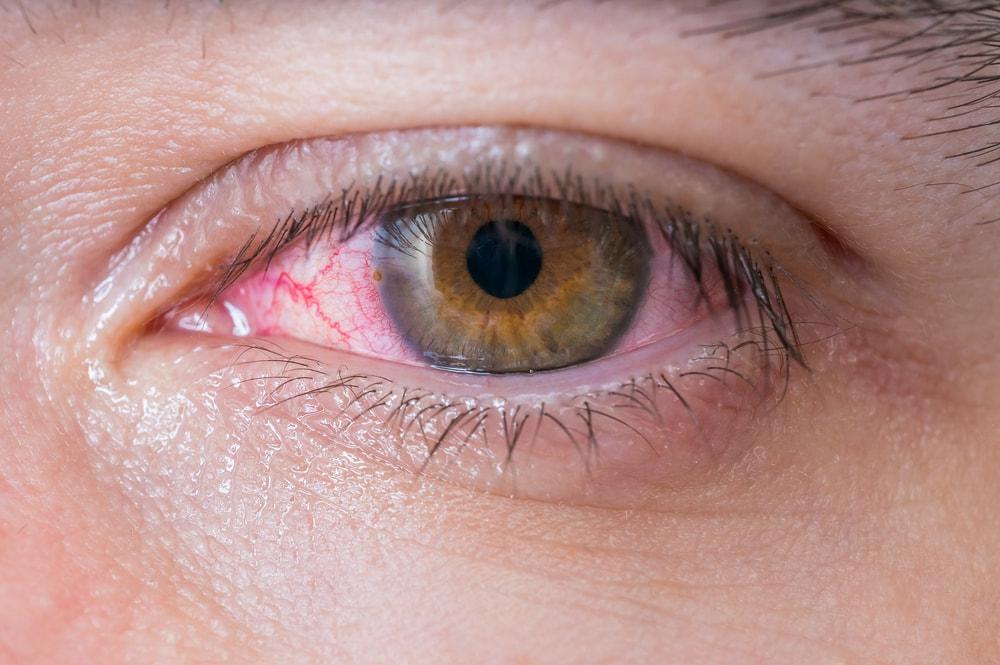|
Red eye, when your eyes are bloodshot, may be uncomfortable. Eye redness may come on gradually over a few days or appear suddenly after you have had a late night. Developing bloodshot eyes is very common, and most people have red eyes at some point in their lifetime. But should you ever worry about red eyes?
The causes of red eyes can range from completely harmless to signs of a serious eye condition. The article below provides a guide on red eyes, including causes, home treatments, and when to seek medical attention. |
What causes red eyes?
Seasonal allergies: Seasonal allergies, such as being allergic to pet dander or pollen, can trigger an immune reaction that leads to watery, itchy red eyes.
Environmental factors: Exposure to certain environmental factors, such as air pollution, smoke, and wind, can irritate the blood vessels in the eye, leading to redness.
Contact lens irritation: Not cleaning or overwearing contact lenses can cause discomfort, irritation, and bloodshot eyes.
Infections: Various types of eye infections, including pink eye and other, more serious infections, can cause redness. With a bacterial eye infection, additional symptoms may be present, such as pain in the eye, discharge, and vision changes.
When are red eyes nothing to worry about?
Additionally, if you have digital eye strain from using your computer or cell phone too long, a little break from screen time may help decrease redness.
For mild redness due to allergies, try over-the-counter antihistamine eye drops to relieve irritation.
When to see an eye doctor
- Significant discharge from the eyes
- Eye pain
- Sensitivity to light (photophobia)
- Blurred vision
- History of recent eye injury
- Foreign body in the eyes
- Eye redness that gets worse even with home remedies
The above symptoms could indicate inflammation, infection, or pressure-related eye diseases.
Potential serious causes of red eyes include:
- Viral and bacterial eye infections
- Uveitis, which is inflammation of the middle layer of the eye
- A corneal ulcer, which is a sore on the cornea
- Subconjunctival hemorrhage, which develops when a blood vessel under the surface of the eye bursts
How to decrease the risk of red eyes
- Use good contact lens hygiene and do not sleep in your contacts.
- Use protective eyewear when working around tools or chemicals.
- Take breaks from the screen to reduce eye strain and dryness.
- Avoid rubbing your eyes vigorously, which can lead to irritation.
- Use lubricating eye drops or artificial tears if you have dry eyes.
- Get regular eye exams to rule out autoimmune diseases, which may affect your eyes.
If you are unsure about the cause of your red eyes or your symptoms don’t improve, it is best to see an eye doctor. An eye exam can rule out serious causes. If you would like to ask whether an appointment with one of our eye doctors would be appropriate at this time, call our office at 508-746-8600.










